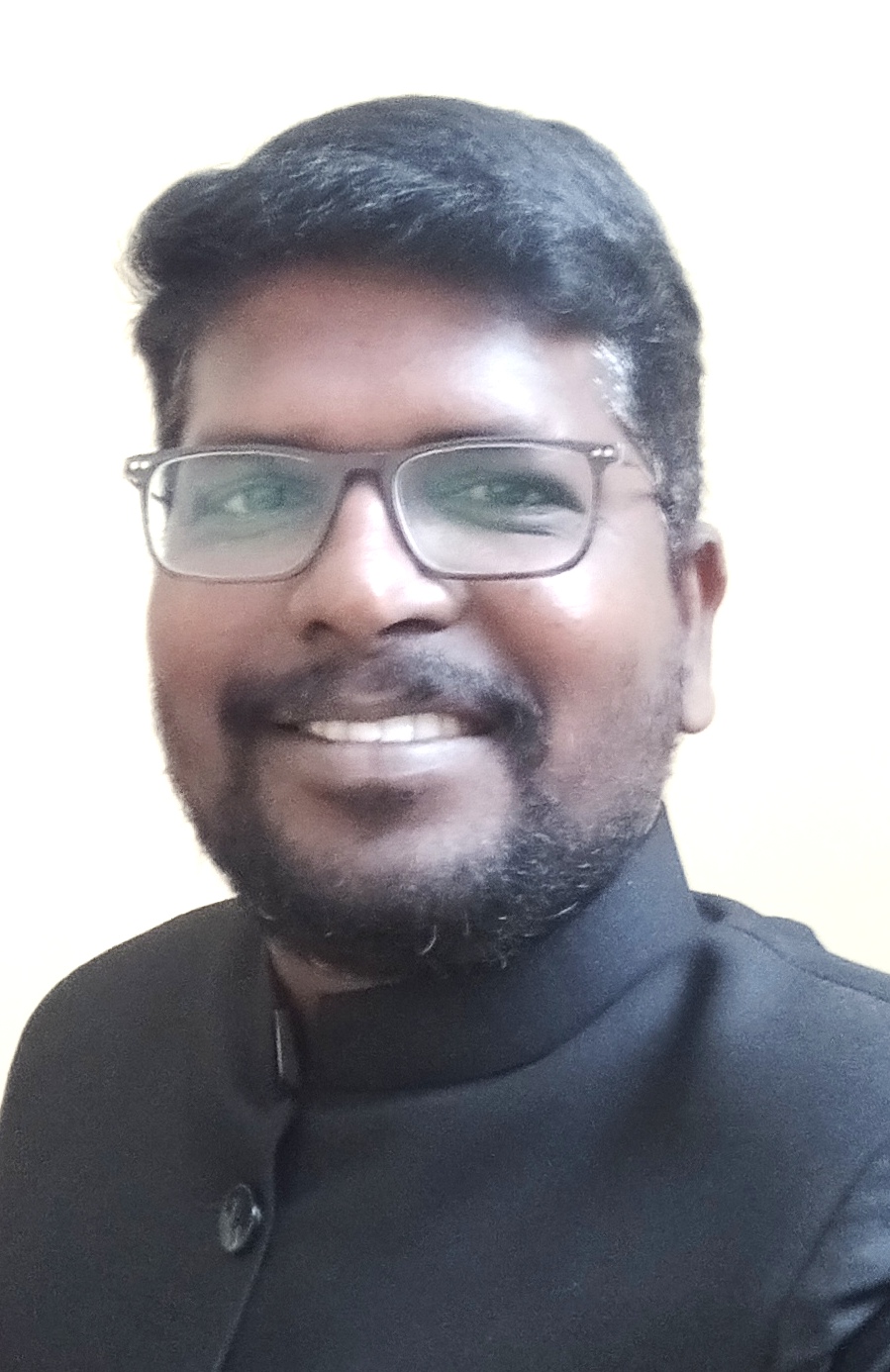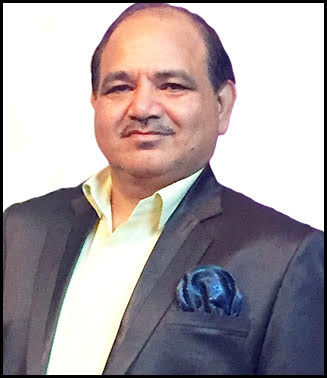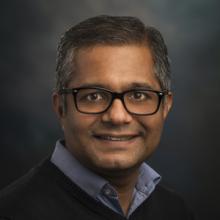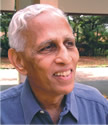S Udayakumar





Prof Roy is Visiting Professor at NIAS and has been awarded the prestigious Senior Homi Bhabha Fellow by Homi Bhabha Fellowships Council, Mumbai, for a period of two year from June 1, 2018.
Since Nov 2014 he worked as Raman Pai Chair Visiting Professor at NIAS till May 2018. Prof. Roy served as Professor , Physics and Applied Mathematics Unit, Indian Statistical Institute, Kolkata during 1993-2014.He joined as faculty in the same institute in 1980. He did his Postdoctoral
research with Prof.Jean Pierre Vigier, Institute Henri Poincare , Paris during 1986-87 on foundations of quantum theory.
His main field of interests include Foundations of quantum theory, theoretical astrophysics and cosmology, Brain function modelling
and higher order cognitive activities.

Chetan Choithani is an Assistant Professor in the Inequality and Human Development Programme of the School of Social Sciences, National Institute of Advanced Studies (NIAS). Prior to his present employment at NIAS, he was a Postdoctoral Research Associate at the Urban Studies Institute of Andrew Young School of Policy Studies, Georgia State University.
Chetan obtained his PhD in Development Geography from the University of Sydney in 2016 as a recipient of the Australian Government’s competitive Prime Minister Postgraduate Award. Before his PhD, he completed a Master of Population Studies from the International Institute of Population Sciences, and a Master of Arts in Globalisation and Labour from the Tata Institute of Social Sciences.
The broad disciplinary domain of Chetan’s work is development studies. Within this area, his research and teaching interests include migration and urbanisation, food and nutrition, livelihoods, gender, and social policy and how they relate to development, particularly in the Indian context. He has published his work on these issues. He is the author of the book Migration, Food Security and Development: Insights from Rural India, published by Cambridge University Press. His peer-reviewed articles have appeared in leading journals including World Development, Global Food Security, Gender, Place and Culture, Economic Geography, Geographical Research, Journal of Peasant Studies, and Economic and Political Weekly. Chetan has done extensive fieldwork in remote parts of India, and his research uses primary, field-based insights to engage with and inform larger issues of development.
Chetan has received competitive funding for his research. He is currently working on two research projects. He is the co-investigator on a research project that looks at the relationship between climate change, agrarian livelihoods and labour migration in India, funded by Columbia University President’s Global Innovation Fund. Second project, funded by Australian Consulate in Chennai through Australia Alumni Grant Scheme, examines the interlinkages between migration, urbanization and food security in India. Prior to this, he was involved in two major research projects. The first of these included Australian Research Council funded project on food security in India with colleagues from Australian and Indian academic institutions. The second project, funded by Dutch National Science Foundation, looked at urbanisation and development linkages at the lower echelons of India’s urban hierarchy, at rural-urban transition zones, and lives and livelihoods at these transition places with colleagues from University of Amsterdam and Georgia State University.

Dr. Sebastian is a social anthropologist by training, and she holds a keen interest in carrying out interdisciplinary research. Her broader areas of research interest include kinship and gender, sexuality studies, urban sociology, decolonial theories, and city, health, and social policy.
Dr. Sebastian's ethnographic interests are in South and Southeast Asia. Her study of matrilineal kinship practices in Malabar (Southwest India) and West Sumatra (Indonesia) offers a seminal contribution to the field of kinship, gender, and religion. This ethnography on matriliny is also informed by an analysis of the transformation of kinship practices and gender relations through socio-religious and legal reforms in colonial and post-colonial contexts. An analysis of various archival resources such as colonial commercial diaries, legislations, and litigations related to property disputes is undertaken to enrich her ethnography.
Dr. Sebastian is also engaged in social policy-oriented research, drawing from a range of research methods such as quantitative and mixed-methods research. She is the recipient of the ICMR- International AIDS Vaccine Initiative (IAVI) Young Investigator Award 2021 for a research project titled, 'Influence of minority and COVID-19 stressors on HIV risk and access to services among MSM and Transgender Women: A longitudinal observational cohort (S3-Plus) study in Chennai’.
Dr. Sebastian secured her doctoral degree in Sociology from the University of Hyderabad in 2019 and it was funded by the University Grants Commission (UGC), New Delhi (Junior Research Fellowship). She was a Postdoctoral Fellow in a DBT/Wellcome Trust India Alliance Senior Research Fellowship research project with The Humsafar Trust, Mumbai. Dr. Sebastian's collaborations with community-based organizations in India have enabled varied policy-oriented research and community-based interactions with national and international agencies (such as the EdelGive Foundation, Azim Premji Philanthropic Initiatives, American World Services, American Jewish World Service, and Centre for World Solidarity) in the field of gender, health, and economic empowerment through skill training for women in urban slums.
Courses teaching:
Gender and society- Contemporary perspectives (August-December 2021)
Urban sociology (January-April 2022)
Awards:
Young Investigator Award for research project by ICMR-International AIDS Vaccine Initiative (IAVI) in August 2021
UGC Junior Research Fellowship (JRF) in June 2011
Educational background:
Postdoctoral Research- The Humsafar Trust, Mumbai, India
Ph.D.- University of Hyderabad, India
MPhil- University of Hyderabad, India
MA- University of Hyderabad, India

I am an assistant professor in the Inequality and Human Development Programme of the School of Social Sciences, National Institute of Advanced Studies. I obtained my PhD in Economics from the University of Göttingen, Germany. Before this, I studied at Jawaharlal Nehru University, New Delhi, the University of Tsukuba, Japan and the University of Calcutta, West Bengal.
I am an experimental economist by training with a growing interest in the issues of inequality. Built on the analytical rigour of experiments and Econometrics, my research at NIAS has been on the experiences and instrumentality of inequality. My recent research focuses on the aspects of poverty and deprivation, inequalities generated from the electoral system in India and the inequalities overlooked in data generation and representation.
Teaching:
Quantitative Research Methodologies
Inequality and Human Development

Joined NIAS on 1st February 2007. Most significant research contribution: Analysis of Pakistan’s ballistic missile production capacity. Prof Rajaram Nagappa has specialised in aerospace propulsion and has worked extensively to design and develop solid propellant rockets. His interests are in missile technology and space weaponisation. He has served in the Vikram Sarabhai Space Centre, ISRO as its Associate Director, and later was Pandalai Memorial Chair Professor at Anna University, Chennai. He has also taught at Technion-Israel Institute of Technology, Israel. He is a recipient of the Astronautical Society of India Award, Distinguished Alumnus Award of the Madras Institute of Technology, DRDO's Agni Award for Excellence in Self Reliance, Certificate of Appreciation of the International Astronautical Federation and the Honorary Fellowship of the High Energy Materials Society of India. His recent work includes an assessment of the Pakistani cruise missiles and an assessment of the Iranian satellite launch vehicle Safir. He has also traced the development of fighter aircraft in China as a part of a study on China's Science & Technology capability
BTech (IIT, Madras), PGDM (IIM, Calcutta). Joined NIAS on 2nd July 2004. Most significant research contribution: Analysis of technical and organizational aspects of China’s missile capability; assessment of Pakistan missiles; and assessing the Indo-US Civil nuclear deal. Prof S Chandrashekar is currently a Professor in the Corporate Strategy and Policy Area at the Indian Institute of Management Bangalore (IIMB). Prior to his joining IIMB he spent more than 20 years working at the Indian Space Research Organization (ISRO). His work at ISRO covered all parts of the programme - satellite, rockets as well as the applications of space technology especially remote sensing. He was also involved with activities related to international co-operation and has represented and led Indian delegations to the United Nations Committee on the Peaceful Uses of Outer Space.


PM Soundar Rajan is a pioneer and a leading expert in combat aircraft avionics by his peers from the Services and Aircraft Industry. Through the experience gained in the early eighties, with the development and evaluation of India’s first Digital Avionics Upgrade, he contributed towards the development and Integration of LCA Avionics (1986 to 1995). With deep insight into HW and SW, he contributed towards development to deployment of COTS-based Mission Computers, Display Processors and Radar Computers for India’s Multirole combat aircraft (1996 to 2002). Pioneering HW and SW reuse, he developed the Core Avionics Computer. He upgraded India’s leading Attack aircraft without any help from the OEM (2002 to 2008). During his tenure as Director, DARE he was instrumental in measures leading to self-reliance in the strategic area of avionics and airborne electronic warfare. During the nineties, he played a key role in setting the syllabus for the ME Avionics at Anna University